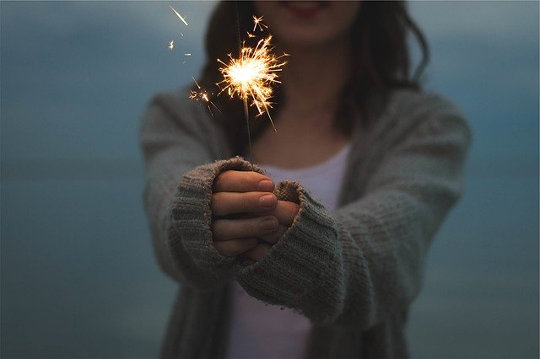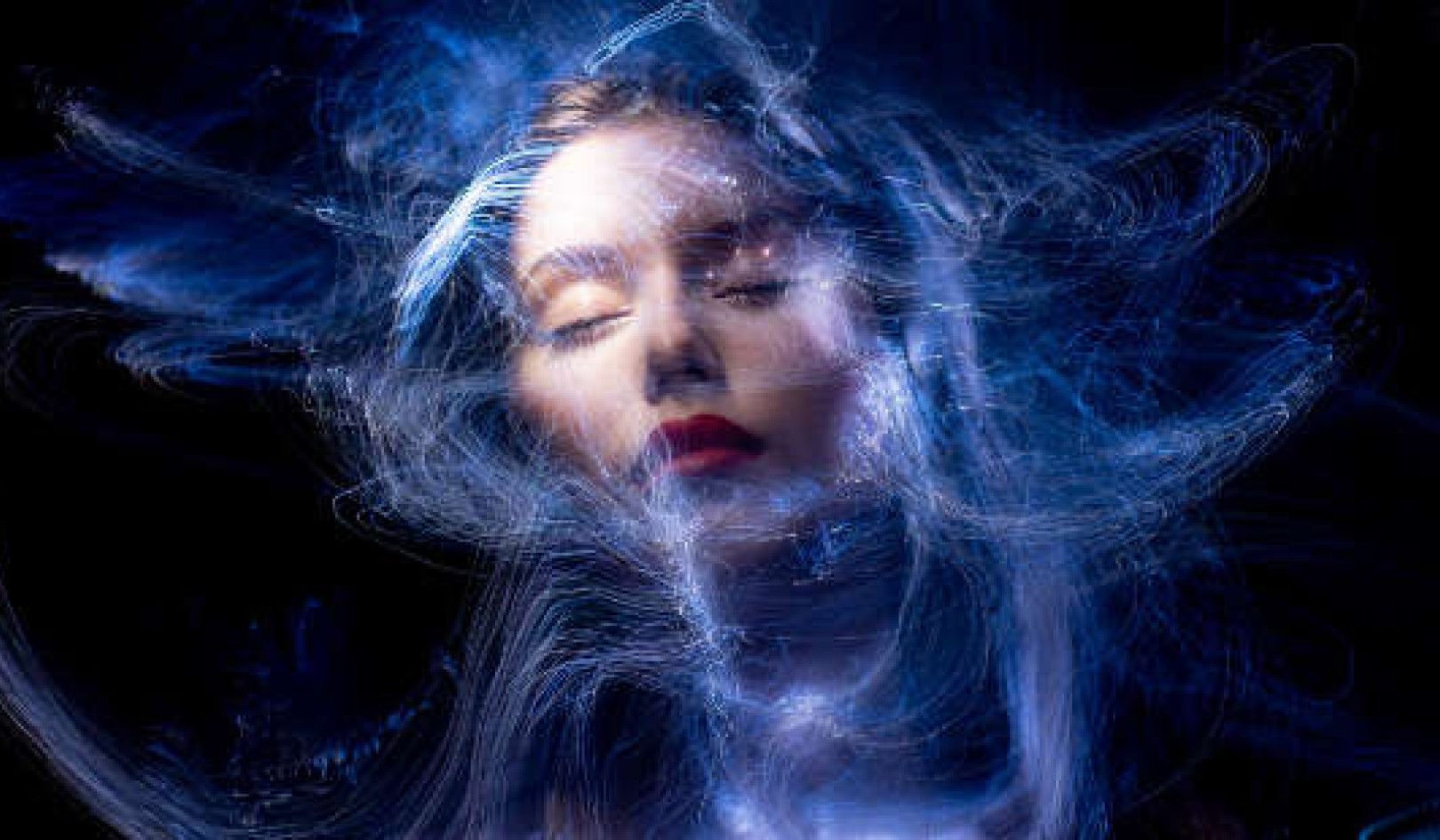
Image by Free-Photos
We all have a unique path in life that, if traveled, brings out the best in us. Yet no path is ever forged for us, and we may have to bushwhack our way through unchartered wilderness when our navigation equipment fails.
Depression is an emotional state that all of the body types are capable of experiencing when they feel stuck along this path. Let’s take a closer look at how depression may affect each of the body types.
(InnerSelf Editor Note: While this article deals with menopause, its information applies to all Yang Body Types whether male or female, menopausal or not. For a previous article that describes the Body Types, see "Woman Overboard: The Depths of Depression")
Yang Type A
When the yin yang body types fall into depression, it is usually because of an imbalance of their own unique predominant emotion. Hence if the Yang Type A has difficulty controlling her predominant emotion of anger, depression will often ensue. This process usually kicks in as a result of feeling belittled or disrespected, initially making her extremely angry but eventually leading her to exhaustion.
The Yang Type A’s sensitivity to oppression is due to an affiliation with wi eui, or showing mutual respect and dignity, which is associated with her stronger spleen. Lack of inherent kidney energy, correlated with calmness and comfort, also contributes to the Yang Type A’s propensity toward anger.
Ann, the Agitated Yang Type A
Ann, a forty-six-year-old Yang Type A with a chip on her shoulder, sought treatment for lower back pain. She asked, “So can you fix it?” After I inquired about when her lower back pain had started, she told me that it came on suddenly after she had watched the news the previous night. Not having yet determined her body type, I assumed that an uncomfortable chair or couch had led to the discomfort, but she maintained that it was a reaction to “those condescending idiots in Washington D.C.” The feeling of being directly assaulted by arrogance made Ann furious at first, but then she felt distraught, depressed, and helpless—a common pitfall of the Yang Type A. During her treatment, I inserted several acupuncture needles to cool excessive heat radiating from her hyperdeveloped spleen—the source of her anger. Not only did Ann feel more relaxed afterward, but her back pain also significantly diminished.
During the menopausal transition, the Yang Type A may become hypersensitive to injustice. Bursts of anger may emerge seemingly from nowhere when she is stressed or uncomfortable. Things get even worse when the Yang Type A feels she has been disrespected or belittled. Menopause is the Yang Type A’s invitation to stand up for herself and others and make a difference but also to distance herself from issues over which she has little or no control. For the Yang Type A, the first step toward preventing and addressing depression is to avoid getting angry over minor issues.
The menopausal Yang Type A often has an aversion to calmness as her spleen yang energy spends most of its time in the upper body and away from the deep-seated and dark yin energy of the lower body. Calmness for her means giving up or falling behind a rigorous daily schedule. “I must keep busy!” she says, abhorring the thought of being lazy and irresponsible. In her haste, she often overlooks and takes for granted family relationships and personal health.
Her tolerance of those who are more laid back and easygoing also decreases. Situations that used to be easily brushed aside, like returning home to find her yin-type hubby on the couch casually munching away on a snack while watching football, may start to aggravate her beyond belief. But little does she realize that her own self-comfort is the only path to postmenopausal health.
The balanced Yang Type A sets time aside to slow down, breathe deeply, and pamper herself. She realizes that “being” is more important than “doing,” and that the rest of her life depends on the ability to shift into a lower gear.
Herbs Can Help Curb The Yang Type A’s Anger
Herbs can also help curb the Yang Type A’s anger by cooling her throbbing spleen and encouraging the downward flow of rebellious yang energy to the kidneys. The herbs below are commonly prescribed in the Sasang clinic for the Yang Type A who is struggling with uncontrolled anger and/or depression.
Zhu Ye (Common: Bamboo Leaves; Latin: Lophatherum gracile)
Bamboo is often praised in Asia for its resilience and ability to bend in strong wind without toppling over, and it is often used in Eastern medicine to promote resilience of the spirit. Bamboo leaves help curb the anger of the Yang Type A by strongly rooting her anger while lifting up her wounded spirit. With their ability to cool and root energy, bamboo leaves also encourage the smooth flow of urine in cases where there is a lack of or a difficult flow due to heat accumulation.
Common Uses
Zhu Ye calms the mind and spirit, promotes a smooth urine stream by draining excess yang and heat from the upper body, and treats mouth sores, swollen gums, and thirst due to heat rising upward from the stomach.
Source
A tincture of bamboo leaves can be purchased from Hawaii Pharm; look for Dan Zhu Ye tincture on their website.
Bo He (Common: Field Mint; Latin: Mentha arvensis)
Bo He, or field mint, soothes and cools the stomach energy of Yang Type As and also has a calming effect on the mind, alleviating stress and anger and promoting sleep. Field mint is also beneficial for Yang Type A headaches. Chilled field mint tea makes for a refreshing drink in the summer or whenever you need to cool down. Mint also contains a significant amount of iron and vitamin D, which can help counteract SAD, a form of depression brought on by a lack of sun exposure. Field mint may also help pick up your mood on a gloomy day.
Common Uses
Field mint relieves headaches, throat disorders (swollen and sore throat, tonsillitis, and/or swollen glands), stress, anxiety, insomnia, and depression.
Sources
The term mint is an umbrella term that includes spearmint and peppermint, and they all have similar characteristics and health effects. While mint/spearmint/peppermint tea is sold at most supermarkets, keep in mind that tea bag sources routinely combine mint with ingredients that may or may not agree with your body type. For an extensive list of body-type-compatible foods and herbs, please refer to my book Your Yin Yang Body Type. Mint is also available in tincture, extract, and capsule forms.
While mint itself is readily available, field mint, also known as wild mint, is not as easy to find. Field mint grows wild in open fields throughout the United States and Canada. While field mint may have the strongest effect, other types of mint can be substituted.
Preparation and Dosage
Insert a tea bag into a mug of hot water and let steep for two minutes. If field mint leaves are available, boil 9 grams per two cups of water and let simmer for fifteen minutes over low heat. Strain out the leaves before drinking.Up to four cups of mint tea can be consumed per day. For the best cooling effect, drink it chilled. Field mint tea goes well with a bamboo leaf tincture. You can mix the tincture directly into the field mint tea or take the two separately.
Can’t Other Body Types Get Irritable during Menopause Too?
Other body types can get irritable as well, but the reasons irritability manifests is different for each type. The Yang Type B’s irritability is usually because she does not feel respected or appreciated. For the Yin Type A, it’s a result of feeling betrayed or unacknowledged. The Yin Type B’s menopause-related irritability may be the result of a desire to escape rather than face life’s every-so-often harsh reality.
Yang Type B
Yang Type Bs are no strangers to sadness, as it is their predominant emotion. One might think that sadness would make them appear grumpy and seem to be sulking all the time. Actually, sadness doesn’t bring them down like it might the yin types; instead, it cranks them up, often to the point of anger.
If Yang Type Bs are not careful, sadness can get out of control and morph into extreme anger or rage because of their affiliation with sa mu, or sense of societal duty. They can easily take the gift of sa mu too far and feel as if they always have to be in charge, believing that others must heed their advice.
When an imbalanced Yang Type B believes that someone is keeping a secret, sadness will get out of control. Yet it’s rage rather than sadness that gives the Yang Type B a reputation for often being authoritarian and stern.
During the menopausal transition, the Yang Type B’s stronger sorrow-filled lungs often get stronger while her weaker sacral and lumbar areas, which correlate with comfort and joy, get weaker. If she has not experienced much comfort and joy before menopause, then it will be even more challenging for her to embrace the transition.
Dishonesty and betrayal are major obstacles to the Yang Type B’s joy. During menopause she becomes hypersensitive to others’ faults and imperfections. By making a sincere effort to trust herself even if others may not be trustworthy, she sends energy to her liver, and slowly but surely joy unfolds.
Herbal Medicine Can Be Helpful For Yang Type B
Herbal medicine can also be helpful here, since plant energy can encourage the smooth flow of yin and yang energy within the body. The herbs below gently help the excess yang energy descend and transport it from the lungs to the liver.
Lu Gen (Common: Common Reed; Latin: Phragmites communis)
With its strong affiliation for moisture and its hollow stalk, Lu Gen, or common reed, is often spotted close to rivers, streams, and marshes, slurping up water like a straw. After ingestion, common reed transports moisture to the upper body and moderates yang heat. In Sasang medicine, it is often used to tame the excessive lung energy of the Yang Type B by sending cool yin energy to the lungs and encouraging the descent of excess upper body yang heat energy. By softening the flow of upper body energy, this herb also assists with stomach issues such as acid regurgitation, heartburn, and vomiting.
Common Uses
Common reed addresses anxiety, worry, indigestion (stomach acid, heartburn, and/or vomiting), shortness of breath, and dry heaves.
Sources
A tincture of Lu Gen can be purchased on the Hawaii Pharm website.
Preparation and Dosage
Refer to the manufacturer for standard dosage and a Sasang specialist (see “Continuing the Voyage,” page 335) for modified dosage.
Caution
Consult with a specialist before administering to children or during pregnancy.
Food Friends: Buckwheat and Persimmon
While balancing your mood with Lu Gen, how about eating more buckwheat and persimmons? Both of these Yang Type B foods act as mood boosters in their own right. In Sasang medicine, buckwheat is used to detoxify and stimulate energy flow, especially to the Yang Type B’s weaker liver and intestines. It has high levels of tryptophan, which is known to stimulate the release of serotonin, a neurotransmitter that makes us feel happy and relaxed. Lee Je-ma credited persimmons with the ability to nourish the heart and lungs, while uplifting the spirit. With their astringent nature, persimmons are also used in Sasang medicine to quench thirst and address diarrhea.
Can’t Sadness Bring Down Other Body Types Too?
Other body types can also experience sadness, but the reasons sadness manifests differs according to the type. The Yang Type A’s sadness is usually the side effect of excessive bursts of anger.
For the Yin Type A, it’s a result of lacking joy and a reason to smile. The Yin Type B’s menopause-related sadness may be from not having enough quiet time to relax and recoup.
©2019 by Gary Wagman, Ph.D. All Rights Reserved.
Excerpted with permission. Healing Arts Press,
a division of Inner Traditions Intl. www.InnerTraditions.com
Article Source
Yin Yang Balance for Menopause: The Korean Tradition of Sasang Medicine
by Gary Wagman Ph.D. L.Ac.
 Applying the wisdom of Sasang medicine to the major life transition of menopause, Dr. Gary Wagman explores how each of the four Sasang body types has its own unique menopausal challenges, as well as opportunities, and how the natural remedies and diets that work for one type might not work for another. Providing guidelines and tests to determine your type, he details each type’s emotional tendencies, physical strengths and weaknesses, and their balance of Yin and Yang energy within the organ systems, explaining why hot flashes occur when they do, why insomnia is suddenly an issue, or why you feel depressed. Revealing the impact our emotions have on our physiological health, he describes how different emotions, such as anger and sadness, correlate with a particular type’s inborn energetic patterns.
Applying the wisdom of Sasang medicine to the major life transition of menopause, Dr. Gary Wagman explores how each of the four Sasang body types has its own unique menopausal challenges, as well as opportunities, and how the natural remedies and diets that work for one type might not work for another. Providing guidelines and tests to determine your type, he details each type’s emotional tendencies, physical strengths and weaknesses, and their balance of Yin and Yang energy within the organ systems, explaining why hot flashes occur when they do, why insomnia is suddenly an issue, or why you feel depressed. Revealing the impact our emotions have on our physiological health, he describes how different emotions, such as anger and sadness, correlate with a particular type’s inborn energetic patterns.
About the Author
 Gary Wagman, Ph.D., L.Ac., is an acupuncturist and doctor of Oriental Medicine. He was the first foreign student at the Daejeon University of Oriental Medicine in South Korea and lived in Asia for more than 8 years. The founder of Harmony Clinic and the American Institute of Korean Medicine, he lives in Portland, Oregon.
Gary Wagman, Ph.D., L.Ac., is an acupuncturist and doctor of Oriental Medicine. He was the first foreign student at the Daejeon University of Oriental Medicine in South Korea and lived in Asia for more than 8 years. The founder of Harmony Clinic and the American Institute of Korean Medicine, he lives in Portland, Oregon.

























